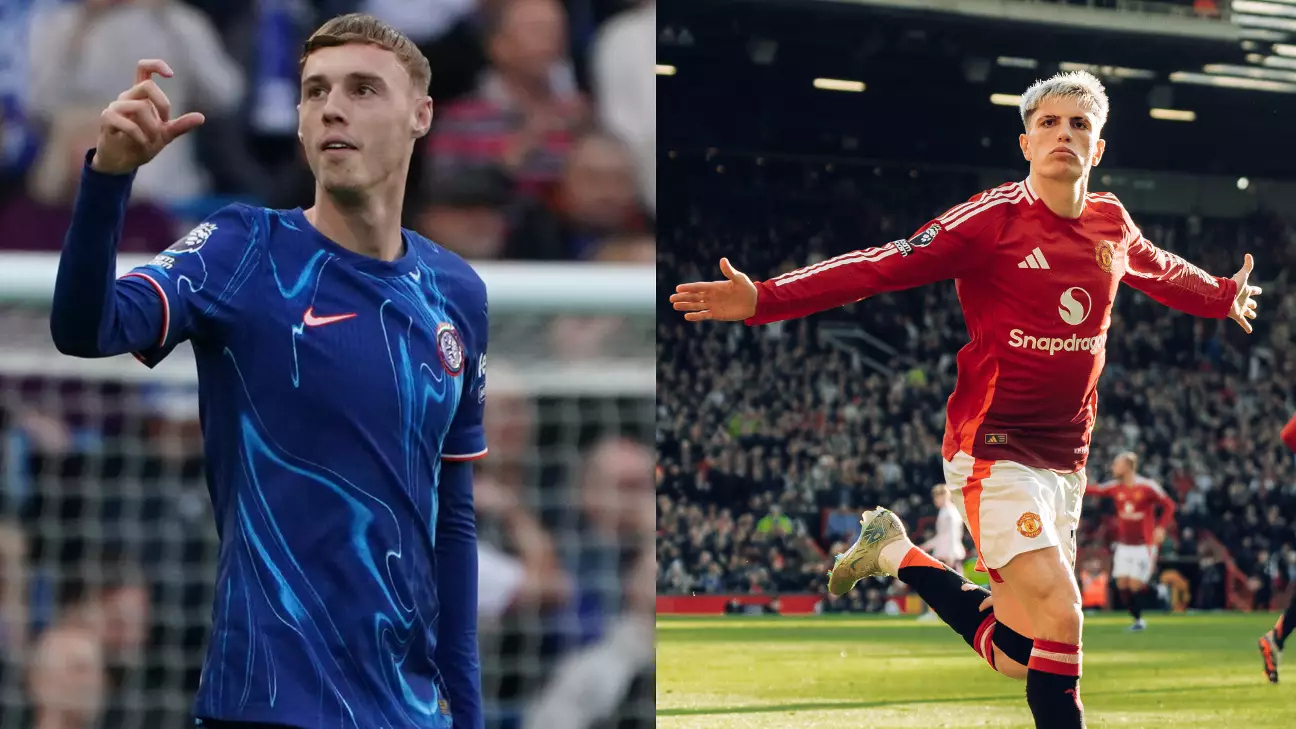As the world of soccer evolves with each season, few fixtures capture the imagination quite like Manchester United facing off against Chelsea. This particular showdown, scheduled to unfold at Old Trafford, promises to be a visual feast, possibly rivaled only by the spectacular nature of the Premier League itself. This week, we will explore not only the exhilarating details of this match-up but also unravel the managerial tactics behind Chelsea’s current renaissance under Enzo Maresca, an analyst of the highest order in the soccer cosmos.
Chelsea’s managerial evolution can be critical in understanding their journey. Maresca, who previously honed his craft under the illustrious Pep Guardiola at Manchester City, has brought new life to a Chelsea outfit that many would describe as disjointed in recent seasons. The way Maresca has seamlessly translated complex tactical theories into practical on-field success underscores the profound relationship between preparation and performance. Like a chess grandmaster executing a carefully laid strategy, Maresca’s attention to detail in training reflects his deep-seated belief that victories are forged in preparation, not merely achieved during the chaos of a match.
In Maresca’s first season at the helm, he has restructured Chelsea’s attacking play, prioritizing possession not as an end goal but as a means to create relentless offensive waves. The stakes are high, and tactics are key; one misstep could expose vulnerabilities, yet this is a risk he is willing to embrace for the potential rewards. It’s noteworthy to consider that while other Premier League managers like Guardiola and Unai Emery meticulously dissect every game, Maresca is not just a disciple but a promising innovator in his own right.
Among the cast of emerging talents at Chelsea, one player’s ascent has particularly caught the eye: Cole Palmer. In a squad characteristic of youth and dynamism, Palmer is channeling his vast potential, rapidly establishing himself as one of the league’s standout performers. His ability to thrive under Maresca’s tactical framework illustrates the spark of brilliance that young players can bring to the elite level of soccer.
Maresca’s approach encourages a culture of ownership among players, which allows for individual brilliance to flourish within a structured system. This transformation parallels the development of positional play, much like in chess, where each piece has a vital role toward achieving victory. As Palmer continues to shine, his performances are not merely a beacon for Chelsea’s fight for supremacy but also a reminder of the importance of nurturing talent within the harsh realities of professional sport.
On a different front, the MLS playoffs have taken center stage, spotlighting the indomitable Inter Miami and its talismanic figure, Lionel Messi. Following an exhilarating opening round against Atlanta United, all eyes are glued to the upcoming match that holds the key to their ambitions: a place in the Eastern Conference semifinals.
What sets this playoff narrative apart is not merely Messi’s presence, which has undeniably drawn unprecedented crowds, but also the heartfelt adoration for manager Gerardo “Tata” Martino, who has brewing soccer zeal within the Atlanta community since leading the club to their first MLS Cup in 2018. Martino’s return to Atlanta embodies the dynamic tension between fame and local loyalty, a factor that could tilt the scales in this high-stakes playoff clash.
The enthusiasm enveloping the matchup is palpable, with Atlanta’s Mercedes-Benz Stadium primed to erupt under the weight of its bustling crowd. The prospect of witnessing Messi elevate the game to an extraordinary level remains captivating, yet the narrative encompasses much more—the cultural significance of soccer in American cities like Atlanta, and the city’s entrenched soccer fanbase eagerly ready to support their heroes.
Transitioning back to the Premier League, the turmoil at Manchester United has garnered significant attention following the club’s decision to part ways with Erik ten Hag. With the Red Devils languishing mid-table and a feeling of despondency settling over the fanbase, the appointment of Ruben Amorim represents an intriguing new chapter—one that comes laden with pressure yet ripe with potential.
Amorim’s entry into a club steeped in tradition and expectation offers a paradox; he must balance modern pragmatic tactics with the club’s historical ethos. His capability to adapt rapidly to the Premier League and engage the media effectively underpins his leadership. However, one cannot help but reflect on the mistakes leading to this juncture—the hesitancy in decision-making and lack of decisive action has compounded United’s early-season struggles.
As Manchester United appears to be entering a transformative phase, questions loom over the continuity of leadership and vision at the club. The pressure cooker environment demands that Amorim not only reinvigorate the squad but also quell the restlessness of fans long accustomed to glory.
As we dissect these narratives unfolding both in the Premier League and MLS, it’s clear that passion, strategy, and leadership are inextricably linked to the fabric of soccer. From new managerial experiments to emerging stars and playoff ambitions, the beautiful game continually evolves. With so many threads weaving through the sport, one can’t help but speculate on what thrilling tales the next matchday will bring. Soccer, after all, is as much about the journey as it is about the destination.

Leave a Reply